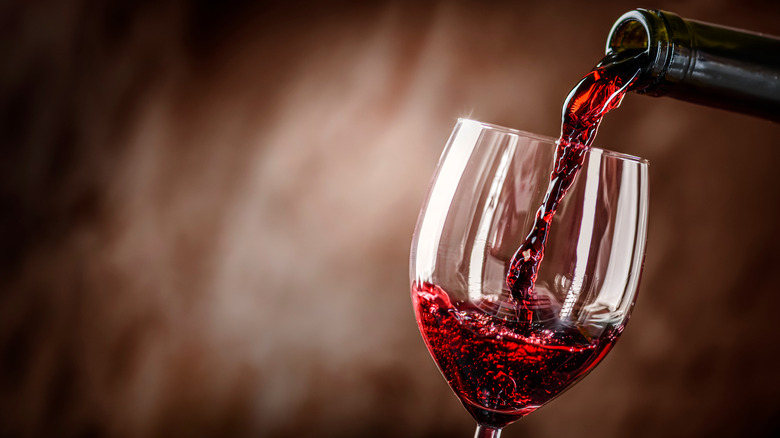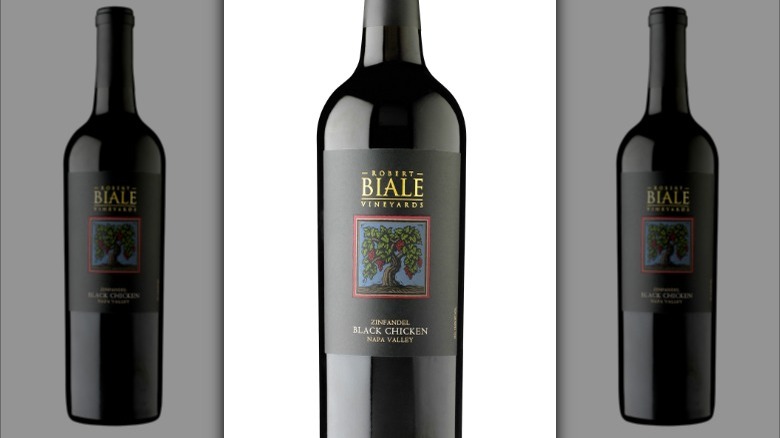The Napa Wine Named For A 1940s Bootlegging Code Phrase
When you pull into the drive of Robert Biale Vineyards in Napa Valley's Oak Knoll District, you'll find the casual elegance for which the area is known. Chairs and tables for wine-tasting appointments are nestled next to a building that houses the family-owned winery's barrel and equipment rooms. And just off the path, visitors will find a chicken coop populated by white chickens busily scratching in their digs, centered on the valley floor of Napa with views of the Mayacamas Mountains to the west and the Vaca range to the east.
First-time visitors to the winery might be perplexed by the hue of the chickens, given that the vineyard's best-known wine is its Black Chicken Zinfandel. But try as hard as you like — you won't find a black chicken. What you will find is a charming story about how the wine acquired its name. It's one that captures the history of Napa Valley, which has had to work to preserve its agricultural traditions, defending the bucolic region from the threat of urban sprawl. And while Wine Enthusiast's 94-point review of the current release of Robert Biale's 2021 Black Chicken Zinfandel should certainly pique your interest, even the vineyard will tell you, it's the story that moves bottles.
Hard times called for desperate measures
Aldo Biale was only 13 years old in 1942 when he lost his father, Pietro, to a rock quarry explosion. The father had been working in the quarry to supplement income for the struggling family farm, which sold vegetables, walnuts, prunes, Zinfandel grapes, as well as white leghorn chickens and their eggs. Despite their grief, Aldo and his mother were determined to keep the family farm afloat, and they sought another option. Customers wanted to purchase young Aldo's homemade wine, but there was one hurdle to overcome.
The rural Napa farm shared a party telephone line, which required a little creativity on Aldo's part, knowing that curious neighbors could listen in to phone orders placed for produce, eggs, and his not-quite-legal wine. Aldo put out the word that callers could request a black chicken if they wanted the young man to add a jug of his bootleg wine to their delivery. Since the chickens the farm-raised were white, the black chicken — a nod to the Gallo Nero, or black rooster that adorns bottles of Chianti that hail from Italy, the land of the Biale family's roots — was a clever solution, a code that let teenaged Aldo safely peddle his wine.
Today, Aldo's son, Bob Biale and his team still tend the family farm, and the estate vineyard offers up some of the fruit for the Black Chicken Zinfandel, named for Aldo's creative solution and dedication to surviving hard times.

